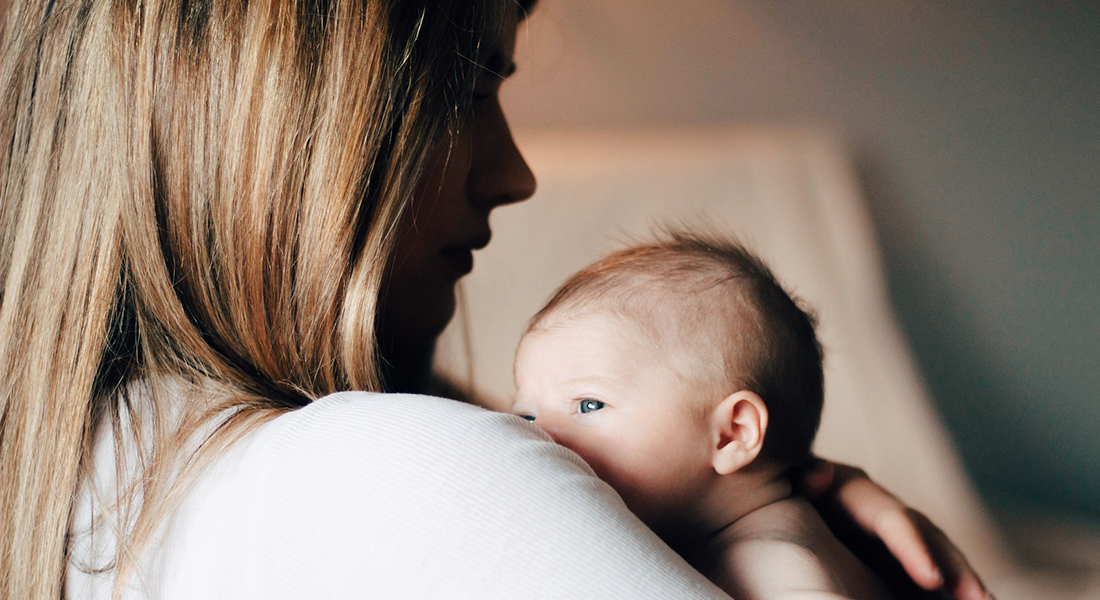Shorter parental leave can weaken children's well-being and development
A new study shows that Danish children’s well-being is improved when their parents take longer parental leave. At the same time, preliminary figures show that earmarked parental leave for fathers causes parents to take shorter leave overall. The earmarking may thus prove to weaken children.

How does the duration of parental leave affect the well-being and development of children? And is there a difference in which children benefit most from longer parental leave?
A new study sheds light on this area, which until now has only been studied sporadically.
Researchers looked at changes in Danish children's well-being after the 2002 parental leave reform, which extended parental leave from 24 weeks to 46 weeks. Before the reform, mothers typically took 7.5 months of parental leave. After the reform, they took 10.7 months - three months more on average. The length of parental leave for fathers did not change after the reform.
"We can measure the impact of the length of parental leave on children's well-being by comparing well-being measures in primary school for children born just before and just after the new parental leave rules came into force. Since the children and their families differed primarily by the type of parental leave programme they had, we can use the change in parental leave rules as a natural experiment to investigate the causal effect of longer parental leave," explains Ida Lykke Kristiansen, postdoc at the Center for Economic Behaviour and Inequality, University of Copenhagen.
She conducted the study together with researchers from Aarhus University and the Rockwool Foundation Research Unit.
Parental leave affects well-being later in life
The children, who were born in the years around the maternity reform in 2002, participated in the Danish Well-being Survey conducted in well-being survey in 2015-19.
"We find that children whose parents took longer parental leave due to the new parental leave rules had better wellbeing in 7th and 8th grade," says Ida Lykke Kristiansen.
On average, the child's well-being measures increased by 4.8 per cent for every extra month of parental leave their mother took. Each month of parental leave resulted in a small but significant boost to the child's wellbeing. Overall, the study shows a significant improvement for the children of the mothers who extended their leave by almost three months.
If the earmarked parental leave leads to some children having less time with a parent overall and being sent to daycare earlier, it can impair the well-being and socio-emotional development of this group of children
Benefits emotional development and social life
The new study also shows that longer parental leave can strengthen children's socio-emotional skills, including their emotional stability.
"Several studies have shown that socio-emotional skills, such as conscientiousness or neuroticism, have an impact on virtually all areas of our lives, such as health, criminal behaviour and income," Ida Lykke Kristiansen points out.
Finally, the extension of parental leave has reduced inequality in children's well-being and development.
"Our results indicate that the inequality in well-being and socio-emotional skills between the children decreases as the length of maternity increases. The group of children who would typically have the worst starting point in terms of well-being and socio-emotional skills are also those who have the greatest benefit from the reform. For this group, we also see less absence from school and higher grades in 9th grade," says Ida Lykke Kristiansen.
Earmarking can backfire
As the 2002 parental leave reform shows, Danish men are not very keen on taking parental leave. According to Statistics Denmark, fathers took a paltry 14 per cent of parental leave in 2021.
To encourage fathers to take a larger share of shared parental leave, last year the Danish Parliament increased the earmarked parental leave for fathers from 2 to 11 weeks. Some critics of the law change were concerned that fathers would not utilise their share of parental leave to the same extent and that the average parental leave period would become shorter.
Preliminary figures from ATP/Udbetaling Danmark indicate that the critics' fears were justified: The total parental leave has so far become shorter after last year's reform.
"Our study shows a correlation between parental leave length and child well-being. If the earmarked parental leave leads to some children having less time with a parent overall and being sent to daycare earlier, it can impair the well-being and socio-emotional development of this group of children," says Ida Lykke Kristiansen.
The study is called "Effects of Extending Paid Parental Leave on Children's Socio-Emotional Skills and Well-Being in Adolescence". You can read it here
The article is based on the Rockwool Foundation's post about the study (written by senior researcher Miriam Gensowski).
Contact
Ida Lykke Kristiansen
Postdoc
Center for Economic Behavior and Inequality
Mail: ilk@econ.ku.dk
Phone: +45 35 33 75 96
Simon Knokgaard Halskov
Press and communications officer
Faculty of Social Sciences
Mail: sih@samf.ku.dk
Phone: +45 93 56 53 29
